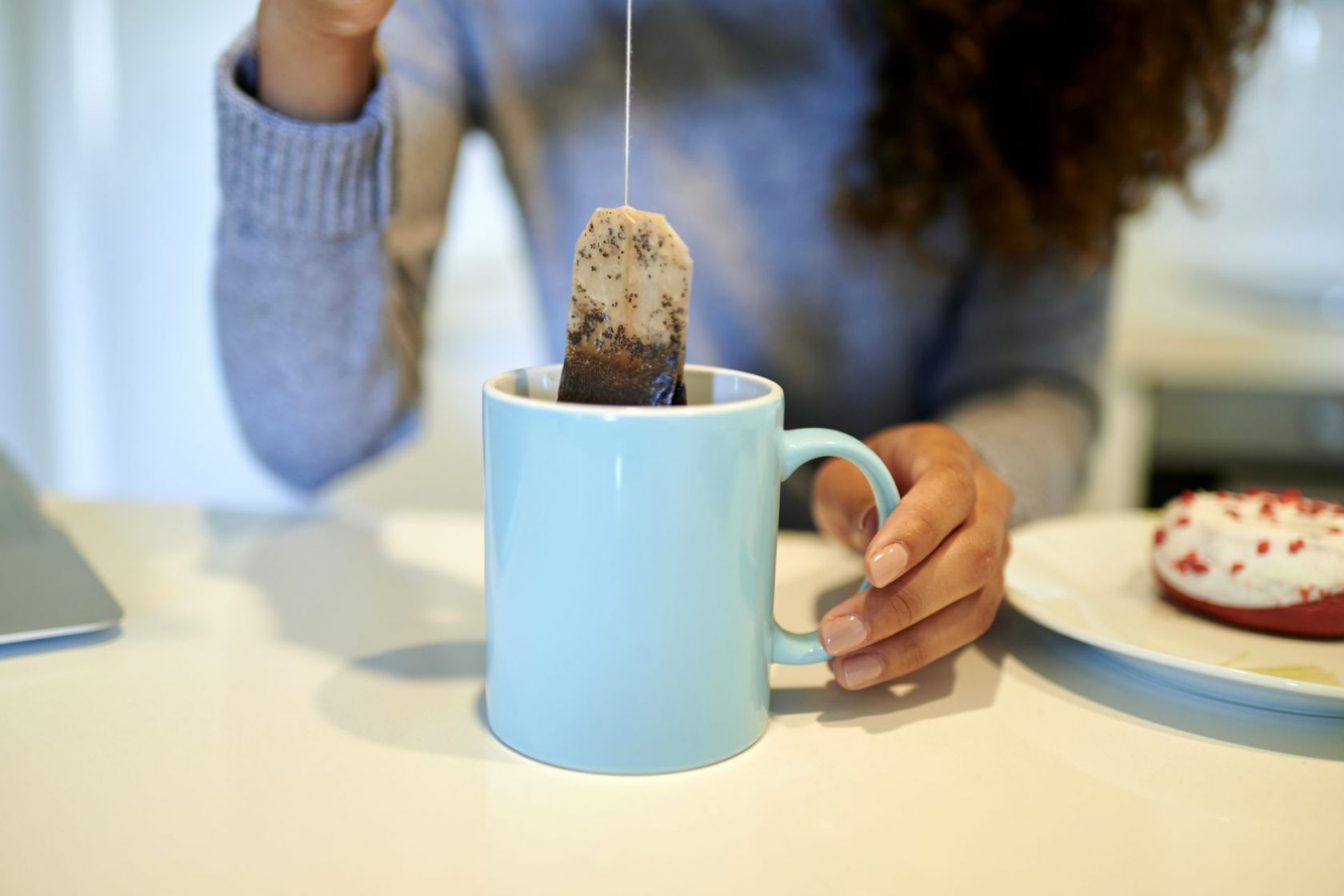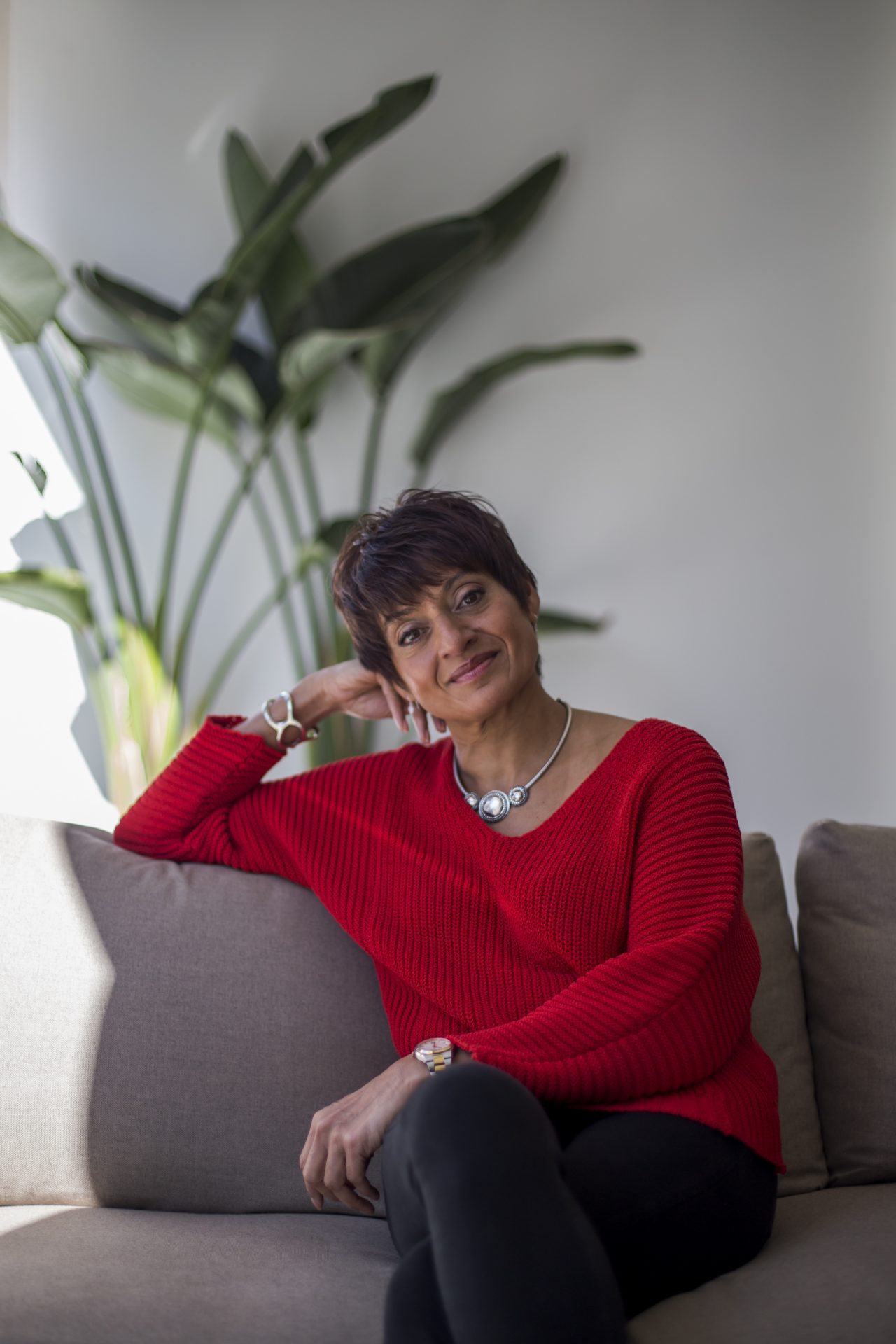Welcome to Stylist’s Sleep Diaries, where we’re taking a deep-dive into one of the most important (and elusive) factors in our day-to-day lives: sleep. To help us understand more about it, we’re inviting women to track their bedtime routines over a five-day period – and presenting these diaries to sleep expert Dr Nerina Ramlakhan for analysis.
In this week’s Sleep Diaries, a 38-year-old university lecturer and business consultant learns about the pitfalls of analysing how long she’s asleep.
A little about me:
Age: 38
Occupation: university lecturer and business consultant
Number of hours sleep you get each night: some nights 9 hours, some nights, 1-2 hours
Number of hours sleep you wish you got each night: 8-9 hours
Any officially diagnosed sleep-related problems (insomnia/sleep apnea): no, although I do have Cushing’s disease, a disease of the endocrine system that means I have far too much cortisol in my body. It’s controlled after brain surgery six months ago, but my sleep has been extremely difficult and erratic for the two years I’ve been under treatment. I used to have severe insomnia and it seems to have recurred.
Do you grind your teeth/have nightmares: yes, both. I used to wear a night guard for grinding and literally ground through it. I didn’t have dreams I could remember for many years, but have started having nightmares in the past month.
Do you measure your sleep in some way (e.g. using your phone or wearable): not currently, although I used to use a wearable before it got so depressing to look at my lack of deep sleep (my personal best was perhaps 30 minutes out of eight hours).
How much water do you drink on average per day: about 2 litres
How much exercise do you do on average per week: currently not much due to my recovery from Cushing’s. I do stretches morning and night and typically walk for 15-20 minutes per day.
Day 1
I had to be online until 9:30pm tonight for a late-night work session. I have a decaf coffee during the video call to help me stay focused, followed by a cup of “digestion-friendly” herbal tea (no caffeine) as I wind down for the night.
I didn’t sleep at all last night (about an hour total) so I feel a bit paranoid about whether I’m going to sleep tonight. In an ideal world, I’d set my phone down and have some tech-free time before bed, but I can’t focus on a magazine or a book tonight.
I manage to get to bed around 11pm and drift off after about half an hour of having my brain swirl around with ideas for work and my PhD research. For me, that’s pretty fast.

Day 2
I slept pretty well last night, for me. I was restless at some point in the early morning, but made a point to just wiggle around into a comfortable spot and not check my phone for the time. I finally woke bolt upright at 3:53am – which is about usual for me. 4am seems to be the witching hour for me; if I can make it past that, I’ll be okay.
This time, no dice – I was awake and achy for another hour or so before finally drifting off again. I’m working from home still though, so I was able to sleep in until 7:45am, when my partner woke me up for morning stretches and coffee.
By the time I’d done my morning routine and finished up my first round of work for the day at 11am, I was completely wiped out. I ended up taking an hour-long nap at lunchtime (instead of eating a decent meal – I ended up having a protein shake).
I wound up feeling a bit better after lunch but was still dragging for the rest of the afternoon, with rather little creativity or enthusiasm to get the rest of my work done for the day. I had a half-caff coffee in order to make it through the afternoon. My end-of-day meeting ended up going well, but I couldn’t wait to be able to curl up under a blanket again.
You may also like
“How can I feel more energised after a bad night’s sleep?” A sleep expert answers your questions
I had a nice dinner of roasted tomatoes and pasta with my partner, then scrolled online for a bit. He made us turmeric steamers before bed, which normally helps me get to sleep, but for some reason, I felt wide awake once I turned the lights out.
I went to bed about 10:30pm, but simply couldn’t get to sleep. I got an hour or two sometime around 3am and then a bit more around dawn.
Day 3
I feel so flipping tired today I can barely see straight. A second night of nearly no sleep in the same week hasn’t helped anything.
I have a coffee with my partner around 8am and then collapse into bed again while he heads into town to hang out. I nap from probably 10am until 2pm, when I manage to stagger upright and go to the grocery store.
I forgot to eat until dinner today, so I eat a vegetable pizza for dinner and watch a movie before turning in. I felt like a sloth all day and was pretty down on myself for being so exhausted. I’m in bed by 10pm.

Day 4
I managed to get a bit more sleep last night but still feel absolutely exhausted this morning.
I get up at 8:45am, have some coffee, do a little elliptical workout and then collapse again. I’m achy all over, especially my joints, and arnica rubs and stretching aren’t helping. I’m positive a lot of this has to do with my disordered sleep, but I can’t stay awake during the day and pay the price at night too often.
I spend the rest of the morning and early afternoon pottering around the flat doing some chores before heading out for a walk with my partner at about 3:30pm. Even though I had water before leaving, I’m parched just a few minutes after we leave, so I have to cut the walk shorter than I’d like. When we get home, I chug over a litre of water.
I have a nice dinner of roasted sweet potato topped with yoghurt and chickpeas, do some stretches, and try to get to sleep early, since I have to be out of the flat extra early tomorrow.
I dig out my weighted blanket and try to use that to help me fall asleep – it almost works, but I can’t turn over to get comfy without considerable effort, which wakes me up. I fall asleep probably around midnight.
Day 5
I’m up and at ‘em early today for a GP appointment, so do my morning work by 6:30am before hydrating like heck, as I need a blood draw today.
I get to the surgery nice and early, and after a bit of a challenge getting my bloods, I head out to discover a bright, beautiful day. I walk a mile or so to get breakfast and coffee, then meander back home – about 5km overall, maybe a bit more.
You may also like
“How can I get more deep sleep?” A sleep expert answers your questions
I’m exhausted since I slept quite fitfully last night, but I’m determined to stay awake today so I can try to sleep normally at night. I do some chores, take care of my next batch of work, read some articles and put together a few explainer videos, then take a break to scroll TikTok and have a decaf oat milk latte mid-afternoon.
My big client is in the US, so our afternoon meeting is now an hour earlier. I make a cup of tea and do our call, then head to the kitchen to prep two pies for Pi Day supper. I enjoy a nice dinner and relaxing evening with my partner before turning in to try and get to sleep early.
Spoiler alert: it doesn’t work. Despite having been tired for most of the day, I simply can’t sleep. I used to get up in the middle of the night and work, but I’ve been trying not to do that recently – I worry that the blue light will make it impossible for me to ever get back to sleep. So instead, I try doing a breathing exercise and some progressive muscle relaxation to unclench and get some rest, but nothing works.
I toss and turn with leg cramps and finally get up to stretch and try moving to the sofa. I curl up there and continue to not sleep until around dawn when I finally doze off for a little while before my partner gets up.
So, what does it all mean? A sleep expert offers her thoughts
Dr Nerina Ramlakhan, sleep expert and professional physiologist, says: “As someone with a medical condition, you could probably improve some of the choices you’re making for your sleep by starting with my five non-negotiables.
“You could also try doing some healing or therapeutic work on feeling safe in yourself if you haven’t already. Because Cushing’s syndrome is a disease caused by the over-production of the stress hormone cortisol by the adrenal glands, your body is constantly fighting the perception of stress. Learning how to calm your mind and feel safe inhabiting your body is going to be key. As a result, somatic-based therapies could be helpful for you.”

Dr Nerina continues: “On a practical note, your nutrition could definitely be improved, and I suspect your relationship with your electronic devices before you go to bed and in bed aren’t particularly great either.
“While I’m glad you’re no longer measuring your sleep with a wearable, you are still overly conscious of how much you are or aren’t sleeping and you really need to stop checking the time when you wake up. You’re probably sleeping more than you think you are and it’s totally normal to wake at some point between 2am and 4am – we all do! The key is to not fret about it and not check the time when you do wake up.”
If you would like to take part in Stylist’s Sleep Diaries, please email us at [email protected] with your name, age and any sleep problems you’re dealing with, using ‘SLEEP DIARIES’ as the subject. We look forward to hearing from you.
Lead image design: Ami O’Callaghan
Other images: Getty/Dr Nerina Ramlakhan
Source: Read Full Article